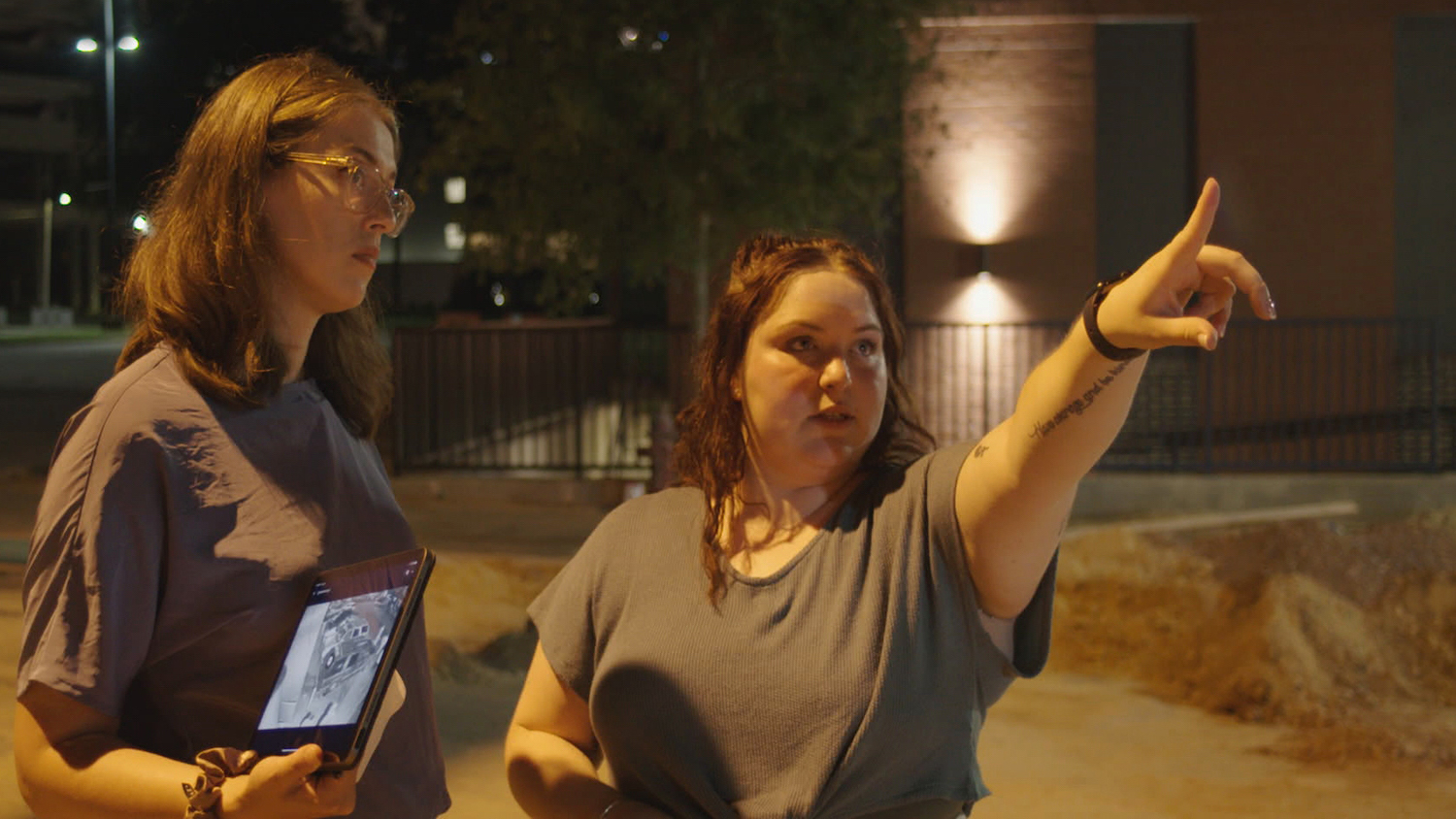VICTIM/SUSPECT

(Check out Chris Reed’s movie review of Victim/Suspect, now streaming on Netflix. Seen it? Join the conversation with HtN on our Letterboxd Page.)
Continuing the searing, cinematic examination of sexual assault that she began with her 2018 feature documentary Roll Red Roll, director Nancy Schwartzman now trains her lens on the way that the police all too often incarcerate victims, rather than perpetrators. You would be forgiven for scratching your head in disbelief at that last phrase, but in Victim/Suspect, the unthinkable happens with alarming frequency. When faced with the prospect of doing their jobs the hard way through rigorous investigation or choosing the easy (for them) method of bullying vulnerable survivors into recanting their accusations, all too many cops go for the second option. Compounding that horror, they then arrest the accuser for making false statements. Welcome to justice.
Schwartzman’s point of entry into her narrative is journalist Rachel de Leon (aka Rae), who becomes interested in doing a piece on the subject as she uncovers the shocking number of cases involving such turnaround. It’s hard not to scream at the screen as we watch the grainy video recordings of interrogations. Over and over again, these occur in small rooms set to uncomfortable temperatures, the grilling going on for hours. Worse, these are in contrast to the questioning of the accused men, which are much shorter and always convivial. There’s nothing like taking traumatized women and traumatizing them all over again.
In Victim/Suspect, we spend most of our time with two such survivors, Dyanie Bermeo and Emma Mannion, who bravely allow their stories—and their families—to be part of the documentary. The circumstances of their assaults may differ, but their treatment at the hands of the police is almost identical. And as de Leon explains, there are over 200 such incidents that she can identify, with many more as yet under the radar. Those we know about come to us via despicable post-conviction shaming by police departments and local media.
Speaking of shaming, let’s call out some of the detectives whose shoddy methods are on full display: Jared Akridge, in Tuscaloosa, Alabama, and Walberto Cotto Jr., of Bridgeport, Connecticut. Rather than probing deeply into the initial accusations, they each chose to badger, harass, and lie to the women (apparently, it is legal for police to lie to you as they attempt to coerce a confession). Leaning in, touching, and misrepresenting the evidence they have, these out-of-control men act as agents of the accused, rather than as representatives of the law.
It’s not just about male solidarity—though no doubt that plays a role, as well—but laziness. As retired San Diego officer Carl Hershman states, the police are just not trained on how to pursue these cases, and if they see a way to clear their dockets more quickly, they seize the opportunity. Meanwhile, innocent women’s lives are further destroyed and perpetrators escape punishment. One such young woman, Megan Rondini, took her own life in 2016, so devastated was she by the Tuscaloosa department’s actions. It’s unconscionable that no one in that unit paid a price for their mistreatment of her.
Complicating the issues—and subsequent appeals—is that the women, still reeling from their assaults, recant their accusations under the full-scale attack from investigators. All one has to do is watch their body language to see what is happening: once they realize that no one believes them, they pivot to doing whatever they can to just get out of the situation. Fortunately, by the end of the movie, there is at least one judge who understands this, overturning the conviction of one of our subjects. Hopefully, there will be more.
Beyond de Leon, her editor and media colleagues, Bermio and Mannion and their parents, and Hershman (who runs training sessions to create better, more empathetic investigators), two of the other most important voices in the film are Dr. Lisa Avalos (also a JD)—a specialist in sexual offenses—and attorney Melissa Hordichuk, who takes on Dyanie Bermeo’s appeal. These are all the champions here, in sharp contrast to the aforementioned villains. In her simultaneously infuriating and inspiring movie, Schwartzman does a terrific job highlighting their work, and all the labor that still needs to happen. Watch, learn, take action. Reform won’t happen unless we demand it.
– Christopher Llewellyn Reed (@ChrisReedFilm)
Netflix; Nancy Schwartzman; Victim/Suspect movie review










Vera Warren
Outstanding work. What a pitiful example of law enforcement Jared Kittredge and Tuscaloosa Police Department involvement is no big surprise.